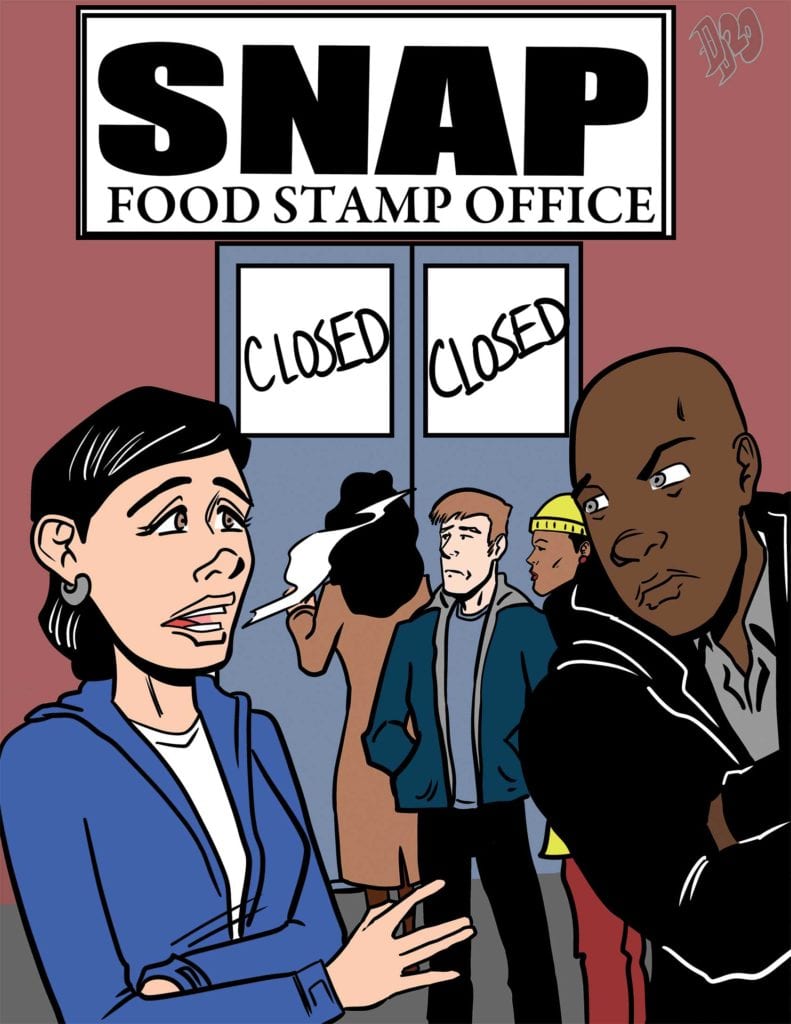
With the holiday season over, many now remember the sumptuous meals with friends and family. For most Americans, the possibility of hunger seems very remote. But hunger is still a problem in America, the greatest industrial power in the world. And while Trump has provided generous tax cuts for the rich, he is now calling for stricter eligibility rules that will reduce the number of individuals able to receive food stamps. The Trump administration has apparently not accepted the Christian directive to feed the poor and the hungry.
Trump’s 2020 budget calls for a $220 billion cut over 10 years in the Supplemental Nutrition Assistance Program (SNAP). This saving can be achieved by raising the qualifying income level or reducing the period of time for eligibility. Children can also lose school-lunch assistance if their parents lose food stamp benefits.
Since Congress will not support Trump’s budget cuts, he plans to have Sonny Perdue, the Secretary of the U.S. Department of Agriculture, which controls food stamps, establish strict regulations. As it is, able-bodied adults with no dependents must work at least 20 hours per week. Even then, food stamps are available only for three months in a three-year period.
Hospitals and medical centers have come to realize that their efforts to treat patients for medical problems will be ineffective if they are starving. Consequently, the Boston Medical Center established a therapeutic food pantry in 2001. The BMC distributes to patients about one million pounds of food per year.
According to U.S. Department of Agriculture data, about 36.2 percent of the 44 million people with food stamps in 2016 were white. With 140 million Americans either poor or with low incomes, they all should join with the Poor People’s Campaign regardless of their racial identity in order to improve their economic opportunities.






